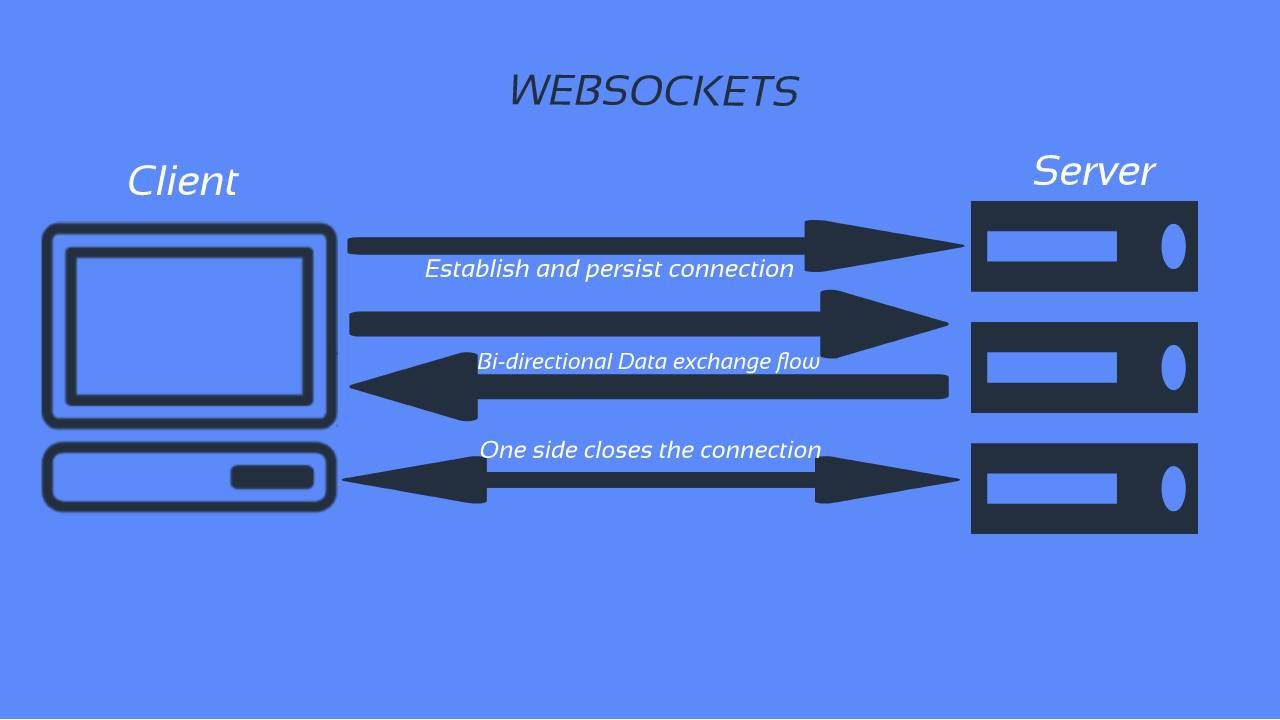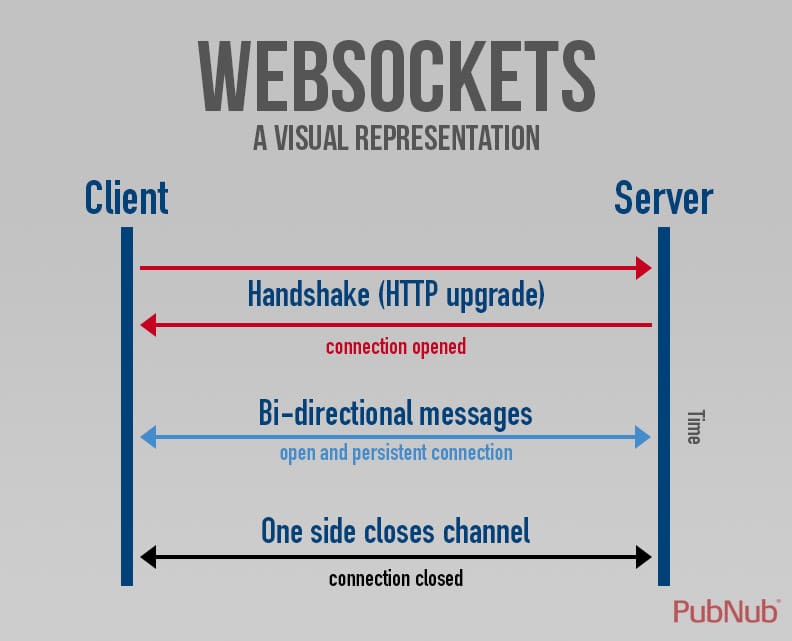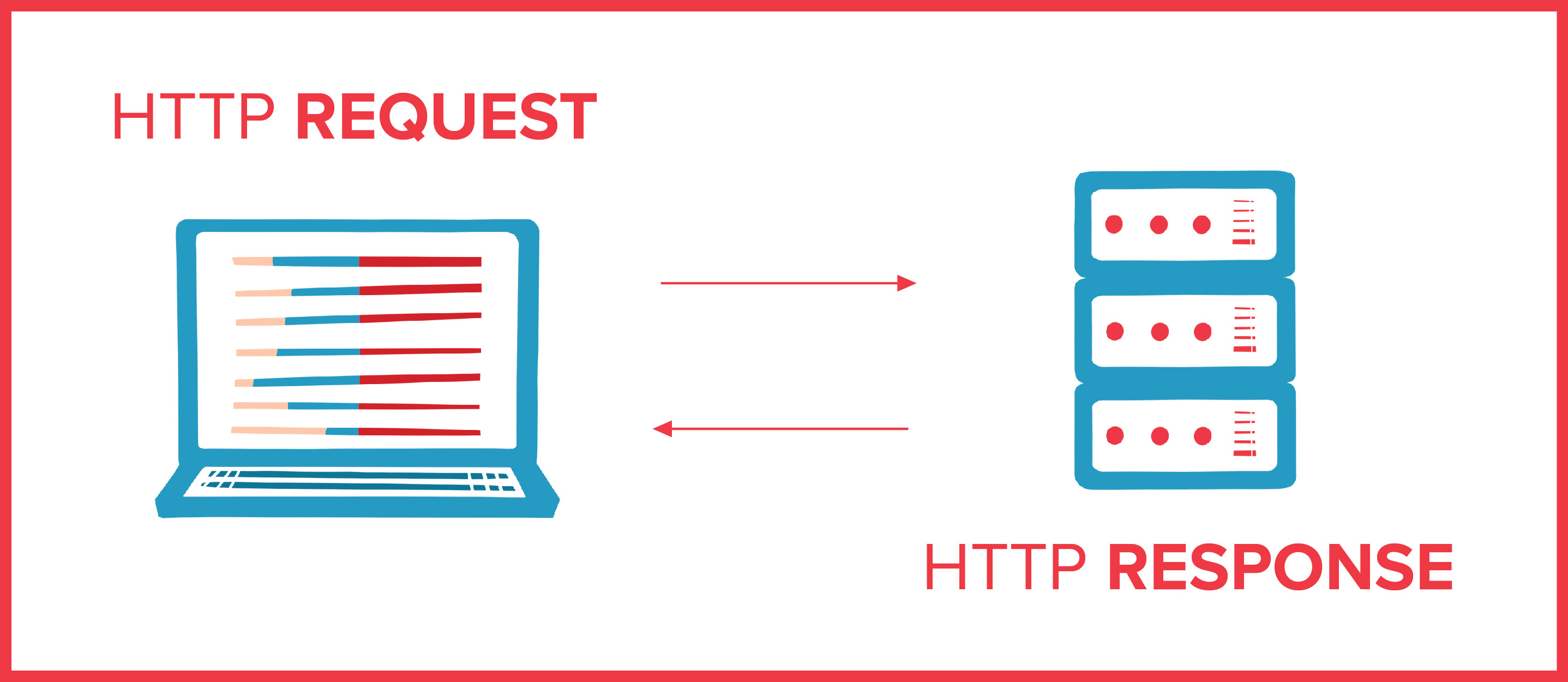Brilliant Strategies Of Tips About Do WhatsApp Use WebSockets

Decoding WhatsApp's Communication Magic
1. Understanding the Basics of WebSockets
Ever wondered how WhatsApp manages to deliver your messages almost instantly? It's not pure sorcery, though it might feel like it sometimes. A key ingredient in this speedy communication is the technology behind how WhatsApp talks to its servers. One technology often thrown into the mix is WebSockets.
So, what exactly are WebSockets? Think of it like this: imagine you and a friend are communicating using walkie-talkies. Traditional web communication (like when you browse a website) is like needing to press the button to talk, then releasing it to listen. You have to keep pressing and releasing. WebSockets, on the other hand, are like opening a direct line — you can both talk and listen at the same time without constantly switching. They provide a full-duplex communication channel over a single TCP connection, enabling real-time data transfer between the client (your phone) and the server.
Why is this important? Well, for applications like WhatsApp where instant messaging is key, WebSockets offer a significant advantage in terms of speed and efficiency. They eliminate the overhead of constantly establishing and closing connections, which is what traditional HTTP requests would require. That overhead can really slow things down, especially when you have millions (or billions!) of users sending messages back and forth.
The beauty of WebSockets lies in their persistence. Unlike regular HTTP requests, which are stateless and require a new connection for each request, WebSockets maintain a persistent connection. This allows for bidirectional data flow, meaning data can be pushed from the server to the client as soon as it's available, without the client having to constantly ask for updates. This is why you see those little checkmarks turning blue almost instantly!

Digging Deeper
2. Investigating WhatsApp's Architecture
Okay, so WebSockets sound amazing, but does WhatsApp actually use them? That's the million-dollar question! While WhatsApp doesn't publicly disclose every single detail of its architecture (trade secrets, you know!), the general consensus, based on network analysis and industry understanding, is that it does leverage WebSockets, at least in part.
It's important to understand that WhatsApp's architecture is likely a complex mix of technologies. They might use WebSockets for certain aspects of communication, such as real-time message delivery, while relying on other protocols for different tasks like file transfer or initial connection setup. It's like a well-orchestrated symphony where each instrument (or technology) plays its specific role to create a harmonious whole.
Think of it this way: when you open WhatsApp and see that spinning circle as it connects, that might involve traditional HTTP requests to authenticate your device and retrieve your contact list. But once that initial connection is established, WebSockets could kick in to handle the continuous stream of messages flowing back and forth. This hybrid approach allows WhatsApp to optimize performance and reliability across different scenarios.
Ultimately, while we can't say with 100% certainty that WhatsApp exclusively uses WebSockets for everything, the evidence strongly suggests that it's a crucial component of their real-time communication infrastructure. Without some form of persistent connection technology like WebSockets, delivering messages with the speed and efficiency that WhatsApp is known for would be a much greater challenge.

What Is WebSocket? How Does It Work? Gcore
Exploring Alternatives
3. Other Technologies in the Mix
While WebSockets are a strong contender, it's important to acknowledge that other technologies could also be playing a role in WhatsApp's communication infrastructure. For instance, they might use Server-Sent Events (SSE) for pushing updates from the server to the client. SSE is a simpler, unidirectional alternative to WebSockets, which could be suitable for certain types of notifications or data feeds.
Another possibility is the use of a proprietary protocol built on top of TCP or UDP. This would allow WhatsApp to fine-tune the communication behavior to their specific needs, potentially offering advantages in terms of performance or security. However, developing and maintaining a custom protocol can be a complex and resource-intensive undertaking.
It's also conceivable that WhatsApp uses a combination of different technologies, adapting their approach based on the specific network conditions or device capabilities. For example, they might use WebSockets when a stable, high-bandwidth connection is available, but fall back to a more robust protocol like TCP when the connection is unreliable. This adaptive approach would allow them to provide a consistent user experience even in challenging network environments.
The key takeaway is that WhatsApp's communication infrastructure is likely a sophisticated and carefully engineered system that leverages a variety of technologies to achieve its goals. While WebSockets are likely a significant component, it's important to remain open to the possibility that other protocols and techniques are also at play.
Why WebSockets Matter
4. The Impact on Speed and Responsiveness
So, why should you, as a WhatsApp user, care whether it uses WebSockets or not? Well, the answer is simple: it directly affects your user experience. WebSockets contribute to the snappiness and responsiveness of the app. Those near-instant message deliveries, those quick status updates — all of that is thanks, in part, to technologies like WebSockets that enable real-time communication.
Imagine if WhatsApp relied solely on traditional HTTP requests. Every time you sent a message, your phone would have to establish a new connection to the server, send the message, and then close the connection. Then, the server would have to do the same to send a delivery receipt. This constant connecting and disconnecting would add significant latency, making the app feel sluggish and unresponsive. Nobody wants to wait ages for their messages to send, right?
By using WebSockets (or a similar technology), WhatsApp can maintain a persistent connection to the server, allowing messages and updates to flow freely in both directions. This reduces latency and improves the overall responsiveness of the app. It's like having a dedicated pipeline for your messages, ensuring they arrive quickly and efficiently.
In today's world, where we expect instant gratification, speed and responsiveness are critical for any messaging app. WebSockets play a vital role in delivering that experience, ensuring that WhatsApp remains a fast, reliable, and enjoyable platform for connecting with friends and family.

The Future of WhatsApp and Real-Time Communication
5. Evolving Technologies and User Expectations
The world of technology never stands still, and neither does WhatsApp. As user expectations continue to evolve, and new communication technologies emerge, WhatsApp will undoubtedly continue to refine and optimize its architecture. The need to deliver messages instantly, reliably, and securely will only become more critical.
We can expect to see further advancements in real-time communication technologies, potentially leading to even faster and more efficient ways to exchange messages. Perhaps new protocols will emerge that offer even better performance than WebSockets, or perhaps existing technologies will be enhanced to meet the growing demands of messaging apps.
Regardless of the specific technologies that WhatsApp adopts, the underlying principles will remain the same: to provide a seamless and intuitive communication experience for its users. That means minimizing latency, maximizing reliability, and ensuring that messages are delivered securely. These are the core values that will drive the evolution of WhatsApp's communication infrastructure in the years to come.
So, while the specific answer to "Do WhatsApp use WebSockets?" is not definitively confirmed by WhatsApp themselves, the strong probability and the discussion of alternative methods give a good overview of the technology behind your favorite chat platform.

What Are WebSockets, And When Should You Use Them? PubNub
FAQ About WhatsApp and Communication Technologies
6. Your Questions Answered
Still have questions about how WhatsApp works its magic? Here are a few frequently asked questions:
Q: Is WhatsApp end-to-end encrypted?A: Yes, WhatsApp uses end-to-end encryption, which means that only you and the person you're communicating with can read your messages. Not even WhatsApp can access the content of your conversations.
Q: Does using WhatsApp consume a lot of data?A: It depends on your usage. Text messages consume very little data, but sending photos, videos, and making voice or video calls can use a significant amount of data. You can adjust your settings to reduce data usage, such as disabling auto-download of media.
Q: Are there alternatives to WebSockets for real-time communication?A: Yes, there are alternatives such as Server-Sent Events (SSE) and proprietary protocols built on top of TCP or UDP. Each technology has its own strengths and weaknesses, and the best choice depends on the specific requirements of the application.